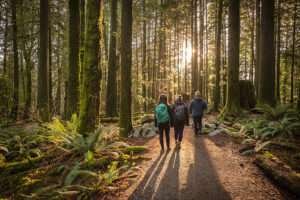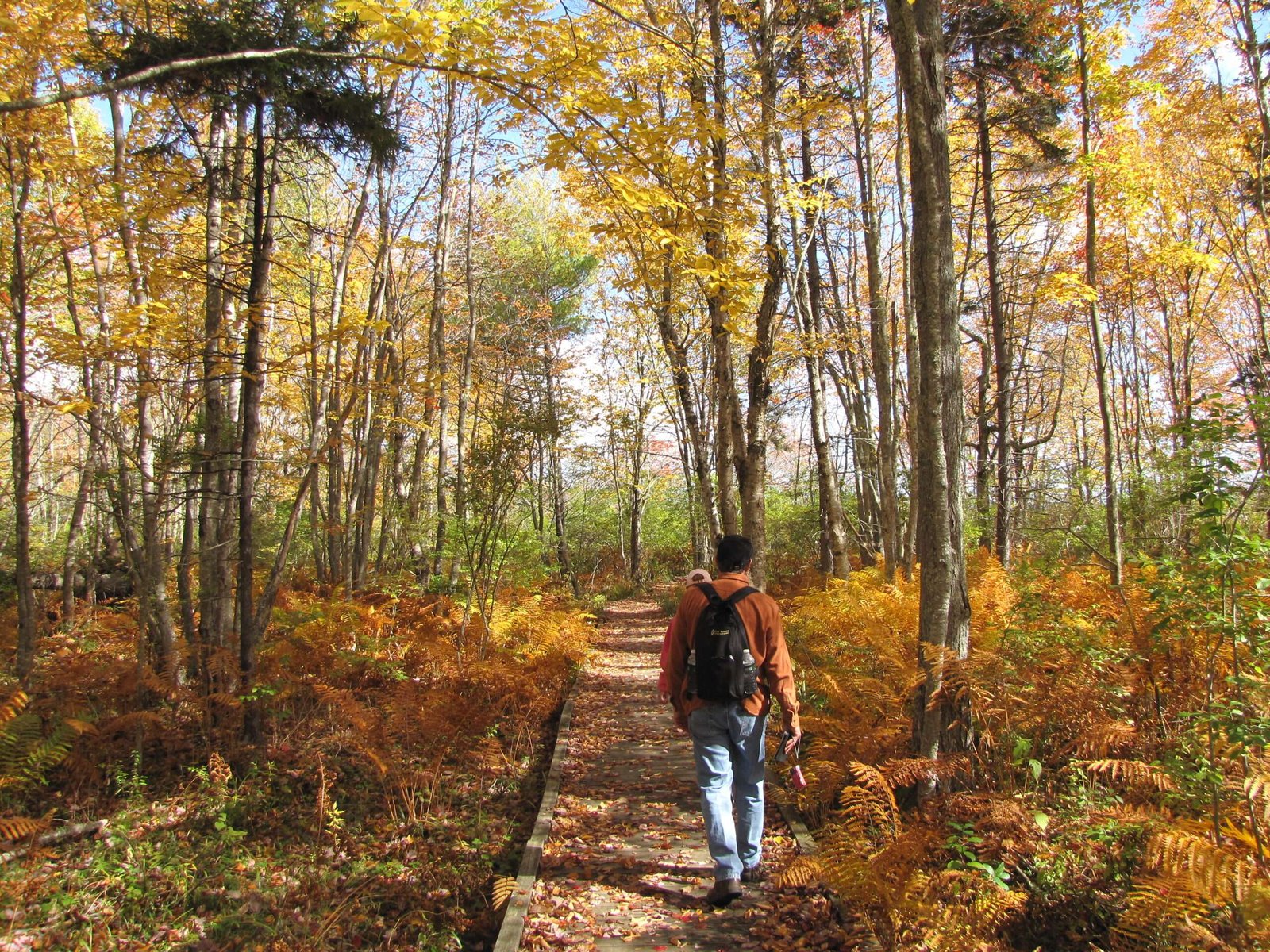Forest Bathing
Connecting with Nature for Wellness And Relaxation
immerse yourself in the ancient practice of forest bathing, where lush green canopy becomes your sanctuary for rejuvenation. In our fast-paced, modern lives, it’s easy to forget the profound connection between humans and the natural world. However, a practice that has gained traction in recent years aims to rekindle this bond – forest bathing, also known as shinrin-yoku. Originating in Japan during the 1980s, this practice has transcended cultural boundaries to become a globally recognized means of improving overall well-being.
Embracing the Forest
As the term “forest bathing” might suggest, it doesn’t involve scrubbing up amidst the flora and fauna with a bar of soap. Instead, qing li, the art of forest walking, calls for a gentle, open-ended wandering through wooded areas, absorbing the forest atmosphere through sight, sound, smell, touch, and occasionally taste. It’s a practice without prescription, with vast potential to reduce stress and foster health on a mental, physical, and emotional level.
What is Shinrin-yoku mean?
Shinrin-yoku is a Japanese term that translates to( shinrin) “forest (yoku) Bathing” in English. It refers to the practice of immersing oneself in nature , practically in a forest environment, to experience the therapeutic benefits of being surrounded by trees and the natural environment. This practice has been associated with various health benefits, including reduced stress, improved mood, and enhanced overall well-being.
What is Forest Bathing?
At its core, forest bathing is a form of nature therapy, a slow and meditative walk in the woods that encourages the participant to be fully present and conscious of their surroundings. It’s about listening to the rustle of leaves, feeling the earth beneath our feet, and simply – feeling the quiet joy of existing within the ecosystem of the forest.
The Origin of Forest Bathing
Emerging in Japan during the 1980s, the concept of forest bathing was put forth by the Forest Agency of Japan to encourage health and wellness by association of nature and forest. It has since grown into a global movement, lauded by eco-therapists and wellness gurus alike.

The Health Benefits of Immersion in Nature
Scientific studies, elucidating the work of qing li, have begun to paint a picture that time in nature, particularly in the woods, can go a long way in keeping us healthy, both mentally and physically. Let’s explore the various benefits “forest Bathing offers:
Increased Sense of Well-Being
Research has indicated that for modern dwellers, contact with forests can be rejuvenating. The phytoncides emitted by trees may have an anti-microbial effect on our bodies, and the experience of the forest seems to quell the sympathetic nervous system—our fight-or-flight response—leading instead to relaxation and a sense of ease.
Enhanced Immune System Function
Studies suggest that regular forest bathing can boost the activity and numbers of natural killer (NK) cells, which are critical in fighting off infection and preventing the onset of illness. This natural improvement of immune function can result in better long-term health.
Improved Focus and Creativity
The calm and restorative environment of the forest can enhance cognitive function. People who engage in regular forest bathing often report an increase in focus and creativity, which can translate into more productivity and innovative thinking in both personal and professional life.
Deepened Connection with Nature and Mindfulness
Forest bathing is an exercise in mindfulness, demanding our full attention and luring us into the present moment. Embracing the Japanese art of forest bathing creates a timeless space for reflection and a deeper appreciation of natural beauty.
Opportunity for Physical Activity and Relaxation
While practicing shinrin-yoku or “forest bathing is not an intense form of physical activity, it does involve moving through the forest leisurely. The gentle exercise of forest walking, combined with the natural tranquility of the setting, offers a unique opportunity to unwind and de-stress in a way that cannot be replicated in a gym or at home.
Physiological and psychological effects

